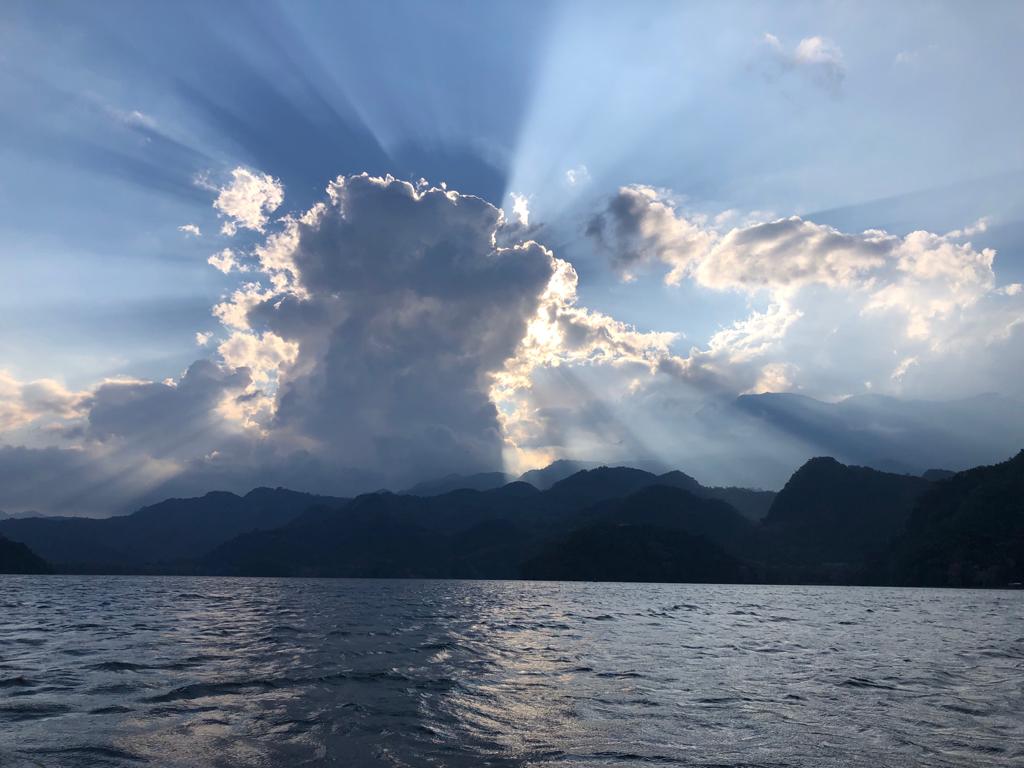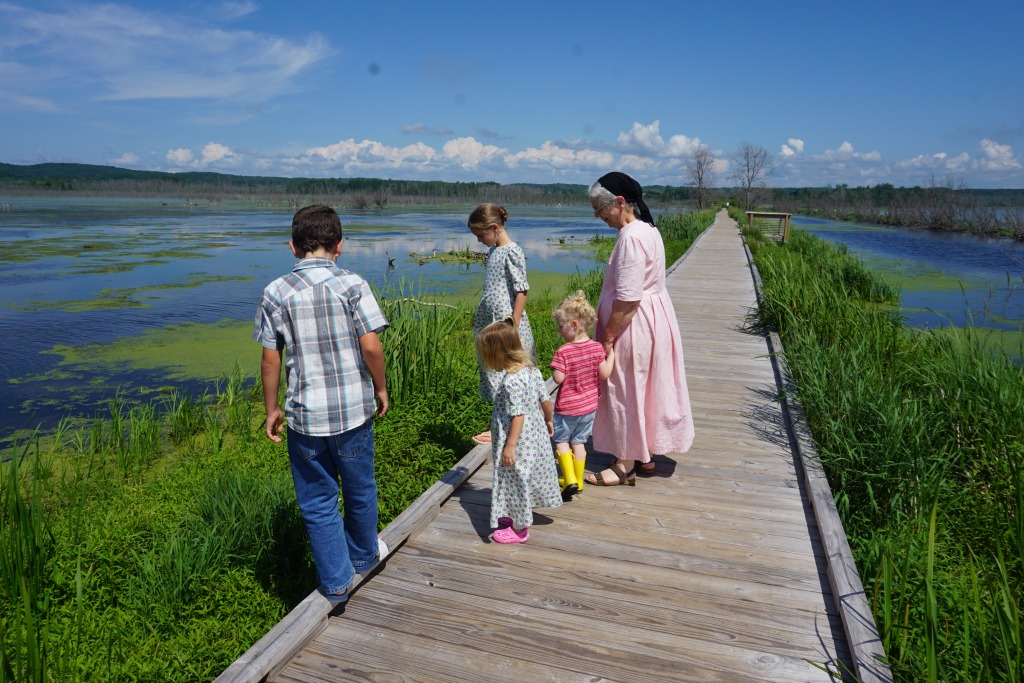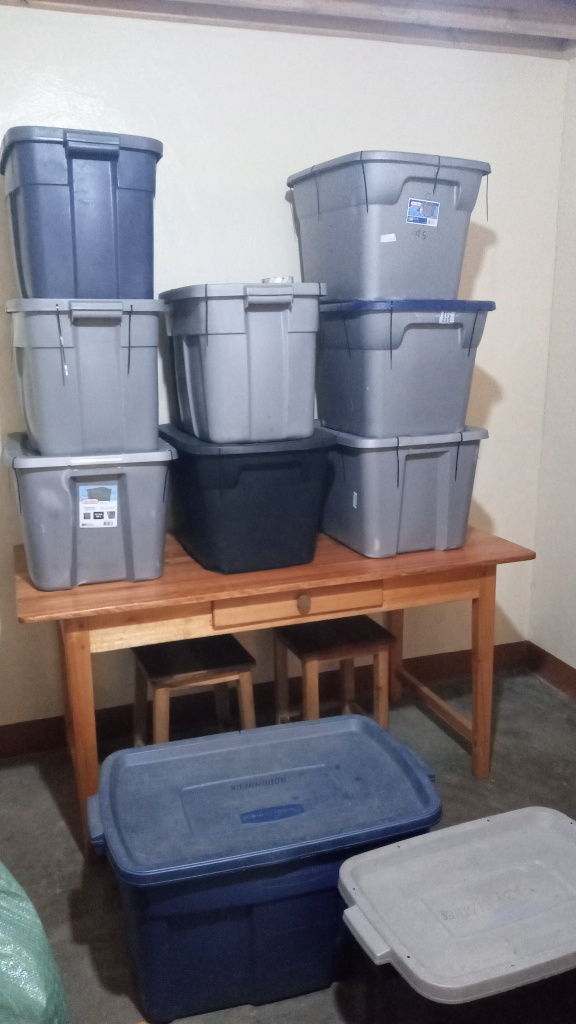Twenty years ago, I listened to a lot of passionate preaching about unreached people groups and our responsibility to go into all the world. “Millions waiting for the gospel” was likened to a field of corn waiting to be harvested, the ripe ears waiting to be plucked. I played and replayed Denny Kenaston’s series on World Christians. I spent hours studying through Perspectives, watched youth teams prepare for six weeks of ministry in Ghana, and wondered how it would feel to be one of them. When it was my turn to go, I sat transfixed while our team leader led us through the Bible, showing us the brilliant missional thread through the whole of history. It opened my eyes to the purpose of our existence—to know and worship God and to help others to do the same.
We crammed into Land Rovers, drove down dusty roads, and sang our hearts out. We ate rat meat and got diarrhea, laughing when there was no bathroom except behind the bushes. We slept in tents and scrubbed laundry by hand. We visited schools and shared with hundreds of students. The dreams for my life which had smoldered before now roared into flame, consuming my thoughts and prayers.
It was settled. Someday I would marry and live in a mud hut, and we would live in Africa for the rest of our lives. Invincible, sold-out, and strong, we would change at least one small corner of the world, maybe more. In the heat of every mission sermon, we clearly got the message—it was more noble to go than it was to stay. ‘Missionary’—someone who was especially devoted to taking the gospel to remote places– was the new buzzword. They were the ones who chose to deny the pleasures of the world and went to the “front lines.” They were the ones who nearly died from malaria, saw miracles, and learned strange languages. They were the special forces.
A few years later, we did live in a mud hut, in a village with many lost and hurting people. When I was down by the river washing my hair and scrubbing diapers, the romance was there. The colorful array of buckets, the chattering women and splashing children, my baby sleeping on the cloth beside me, the setting sun in my face, it all felt perfect. But we never found a tribe of people who were waiting for the gospel, like the heart-gripping messages I had listened to. The people were there, but no one was waiting for anything except the next barrel of pombe (local brew) and any monetary gain they could squeeze out of the mzungu (white man). Suspicion toward our purpose in living there would eventually chase us out of that village. They didn’t need us at all.
On November 4, 2008, I wrote in my journal. “…my days are full of little boys and sometimes I struggle to feel like I’m succeeding in being a missionary at all. Our old neighbor lays on his mat and will likely die in a few days. What does it mean to “reach a tribe for Christ” if we can’t even reach one neighbor man? All this time we’re busy trying to learn this complicated language and getting our house built and with tears we realize we don’t have the answers. Our youthful vision of doing this looked so easy compared to what we’re experiencing. Our people don’t have the Bible in their own language, so we resort to translating Good and Evil, which the people seem to think is a good idea, but they still insist we’re here for some benefit of our own. They think we will take their language to America and sell it and laugh in Tim’s face if he tries to convince them otherwise. Because of this presumption they insist on being paid for helping us with language learning or translation. Money is all they really want, and after many requests, they finally resorted to writing our mission board. Of course, Tim has repeated his vision till he’s nearly out of breath. “We are here for you and for your good,” but so far it falls on deaf ears. When meetings are spent discussing the money issue instead of a hunger for the Word of God, we could easily become disillusioned and wonder if this is really where we’re supposed to be.”
I wondered if one culture winning another culture to Jesus is just a fanciful dream. People came daily with needs, expecting us to give them what they needed. We administered eye drops, bandaged sores, and protected women beaten by their husbands. They came with questions, sometimes about birth control and fidelity in marriage or childbirth. Sometimes it meant praying—and nearly fainting—for a young student who got knifed in the chest during a fight. Or sitting with the neighbor lady while her demented daughter thrashed and slammed her head into the dust. I no longer felt invincible. Rather, I now had no idea what to do in these situations nor how to do them well. It didn’t feel like holy work.
My goal-oriented self had little of which to feel accomplished. We were here to learn language and plant churches, and I wished to conquer it like a chore list: work hard, then mark it off with a sense of accomplishment. Alas, working with human souls gifted with a free will and a vastly different worldview cannot be compared to a chore list. It is not up to my hard work and performance. I wrote in my journal, “God is impressing on both of our hearts that we’ve been focusing too much on strategy and language fluency for our effectiveness. God is telling us to focus on prayer. Our success cannot be measured by our human way of measuring, so why be discouraged?”
The dreams that pulsed through our veins in those youthful days were hard to find while plodding down this path of reality. The flippant determination to learn the language first –because that is what good missionaries do– gave us sore callouses from sitting for days on end, studying. It was a slow dawning in the brain, learning one morpheme at a time. Language learning and church planting, we learned, will not happen in a day, or even a year or two or three.
Elisabeth Elliot said, “It is not the level of our spirituality that we can depend on. It is God and nothing less than God, for the work is God’s and the call is God’s and everything is summoned by Him and for His purposes, our bravery and our cowardice, our love and our selfishness, our strengths and our weaknesses. We are a conglomeration of sinners who sometimes look like heroes and sometimes like villains, for we are no better than pots of earthenware.”1
I had a strong sense of loyalty to the cause but had a small perspective of what “the cause” really is. The cause is, like St. John of the Cross said, “God’s mission is to put love where love is not.”2 Earth has no spot where love is not needed. Love and discipleship can grow wherever there are people, so that means a mother, a dishwasher, a fireman, a pastor, a teacher, or a funeral director can all equally glorify God. We are all God’s special forces because God needs love to be poured into all the cracks of weeping humanity.
Amy Peterson says, “The word missionary has become more problematic than helpful. Instead of describing reality, it blurs our vision and limits our imaginations. It has outlived its usefulness and I vote we give it a proper burial. We need new ways of talking about God’s work in the world. It’s true that God is “on mission” to reveal his glory and love to all the nations by spreading his kingdom on earth, and that we are to join that mission, all of us. But God’s mission has never been about counting the number of spiritual conversions you’ve had in a week or valuing street evangelism over changing diapers and formatting spreadsheets. God’s mission has never been about seeing yourself as a superhero in an action story.”3
God doesn’t need us to save the world, and yet He chooses to use us. He alone does the saving by using His Spirit in us. We are cracked vessels at our best, breathing for a short time and then gone. The important word is not missionary but surrender. It is not about goal-oriented accomplishment, it is about walking with God and living the fruits of the Spirit. It is not about one type of work, place, or country, it is about worship, following in obedience, and finding our place in the grand scheme of things. It is not what we do that defines it as holy or ordinary, it is Who we do it for.
I have no doubt that the call I felt was real. Perhaps without all that passion and energy, we wouldn’t have made it past the first year. But years have passed and I see now that God did more changing in me than in a certain tribe in Africa. Instead of carrying the responsibility for an entire tribe, I am content to focus on one. When my courage and energy fail, I am satisfied to simply say, yes, one more time to moving across the ocean. Instead of carrying my own set of goals and expectations, I recognize God’s ownership of His kingdom and His work and I can rest, with walking in obedience to His spirit. And now, it really makes no difference which continent I am on.
1. Becoming Elisabeth Elliot, Ellen Vaughn, page 261
2. St. John of the Cross
3. Dangerous Territory: My Misguided Quest to Save the World, Amy Peterson























